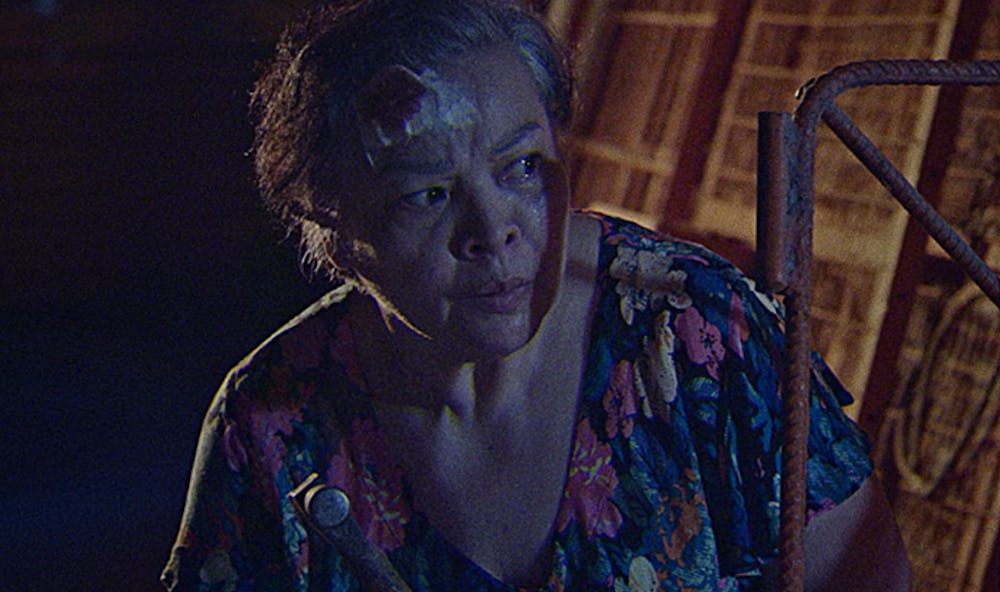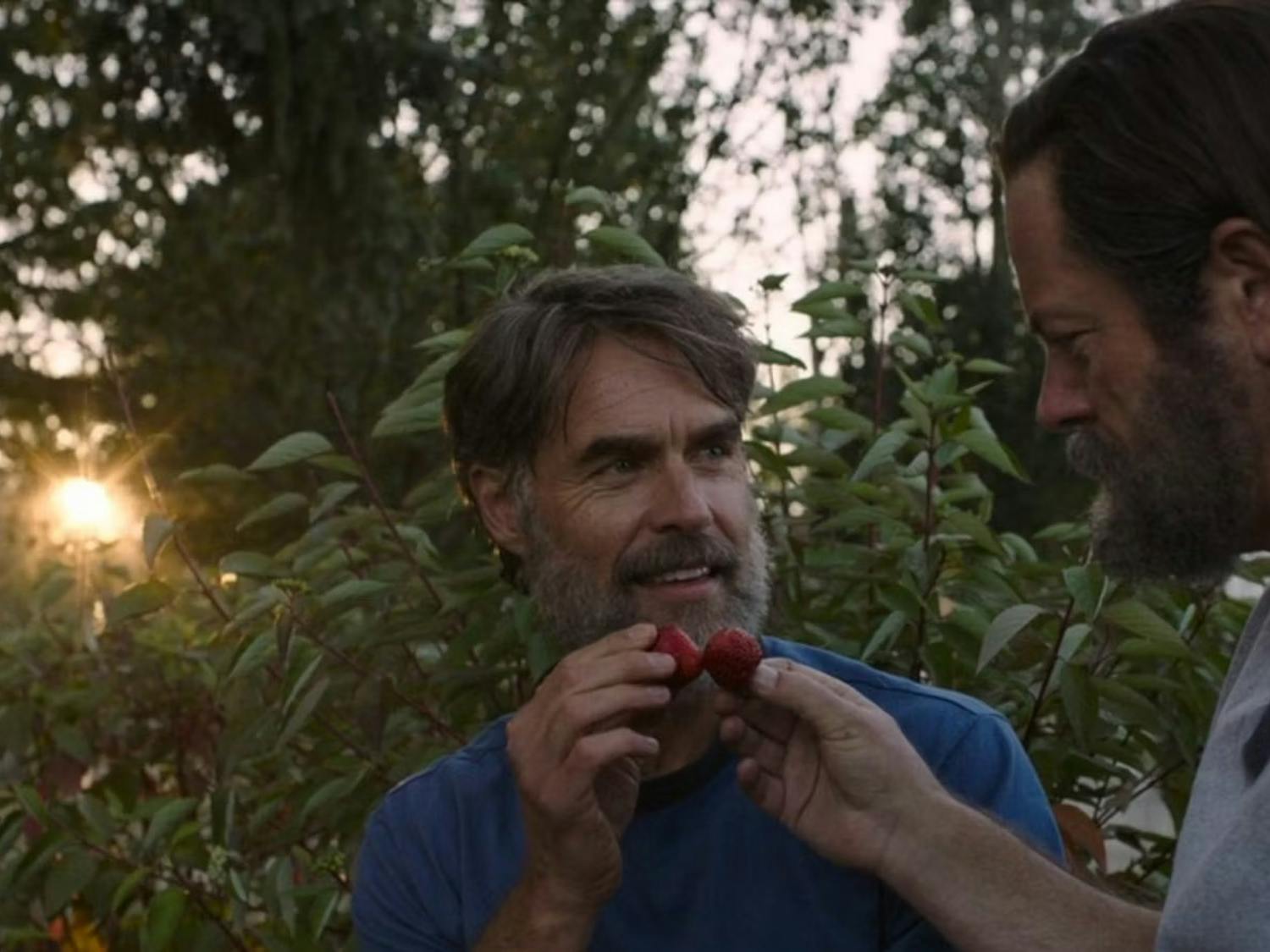Although Martika Ramires Escobar’s Leonor Will Never Die serves as somewhat of an homage to a specific time period of Filipino film, the familiar story offers a sense of nostalgia to any viewer. We see a rugged hero, epic fight scenes against bands of villains, an alluring woman that the hero is sure to fall for, and overall spectacular visuals. But this only sets the premise for one world in the film. The other is real life, the world that Leonor herself lives in.
Leonor (Selah Francisco) is an older woman and retired filmmaker who lives in the real world with her son, Rudie. She fails to pay bills, neglects household responsibilities, and often finds herself stuck in the past. She communicates with the ghost of her dead son, Ronwaldo, who gives her advice when she needs it most. One day while rummaging through boxes, she finds an old script, the beginnings of an action movie about a man also named Ronwaldo, after her son. She occupies herself with finishing the script.
She is brainstorming on a walk outside, when a television is thrown out of a window and hits her in the head. This sends her falling into the script. She is rushed to the hospital, and is unresponsive besides her fingers moving as if they are typing, as the story unfolds inside her head.
As the film goes on, we watch Leonor's family cope with the fact that she may not wake up from the coma she is in. In her brain, the story is continuing to unfold. She becomes close with the characters that she meets, and through the adventures that they go on, we are able to see more and more the influence that real life has on the world that Leonor is creating in the script. The action in the story progresses simultaneously with the action in the real world. The most touching part of the connection between worlds, is that in the script, Leonor still talks to Ronwaldos ghost as a means of comfort, even in a world that she has made up. If she wanted to, could forget the struggles of life in the outside world.
Leonor Will Never Die proves to be an extraordinary film that replicates nostalgia in a way that is understandable for any viewer, anywhere, while also being culturally specific and completely original. It provides a perfect example of the extent to which the things that we create are affected by our lives.
This film critique was written by a youth fellow in the Bullhorn x Philadelphia Film Society Youth2Critic Fellowship.
The PFS Youth2Critic Training Fellowship is a program built around the belief that film criticism helps shape our cultural landscape. It shapes the films we see, but even more, it shapes how we remember those films into the future. Film criticism is a record of the way those we give a voice view film. And PFS believes young people's perspectives need to be lifted up and given that voice.
The Youth2Critic Fellowship gives 4-6 high school students each year the unique opportunity to be trained in the art of criticism by Philadelphia film critics and scholars, to see word class cinema as a part of the Philadelphia Film Festival and PFS year-round programming, and to publish 5-7 pieces of original film criticism in the Bullhorn.
Thank you to the Philadelphia Film Society for their collaboration and support.

Enjoy what you're reading?
Signup for our newsletter




